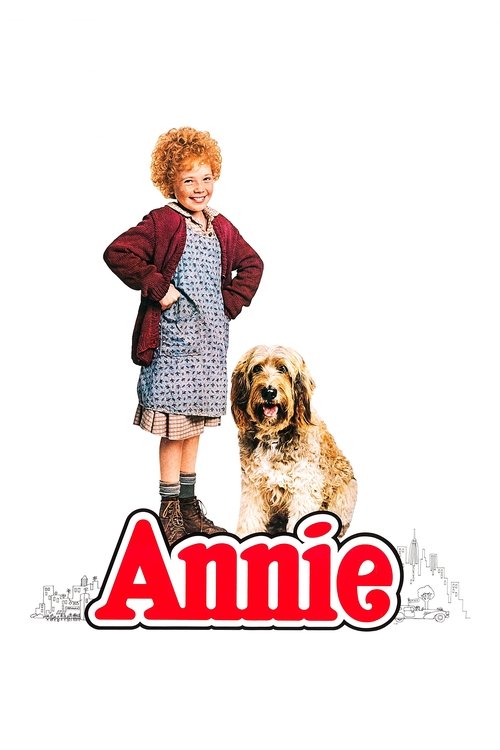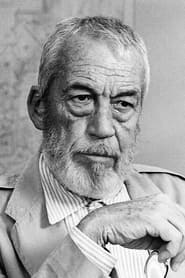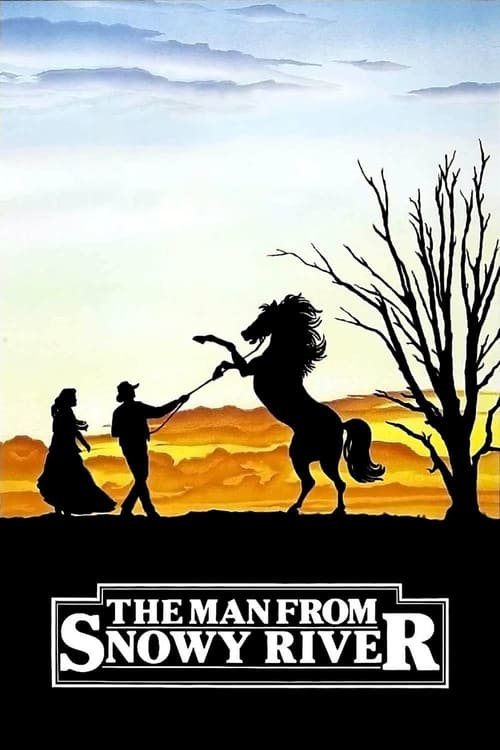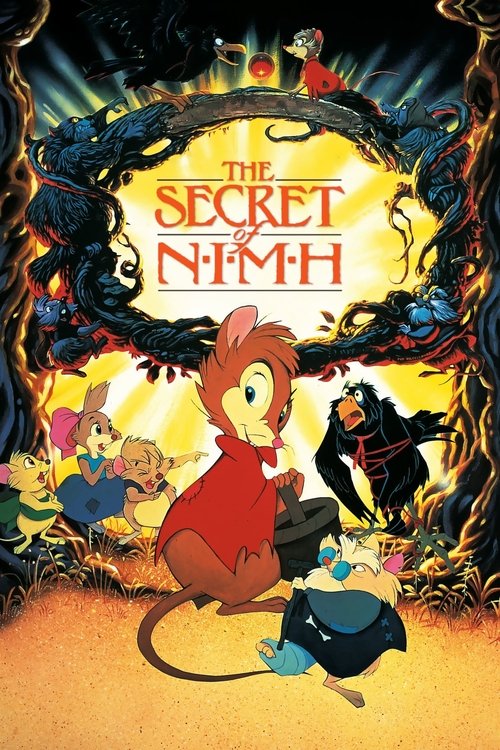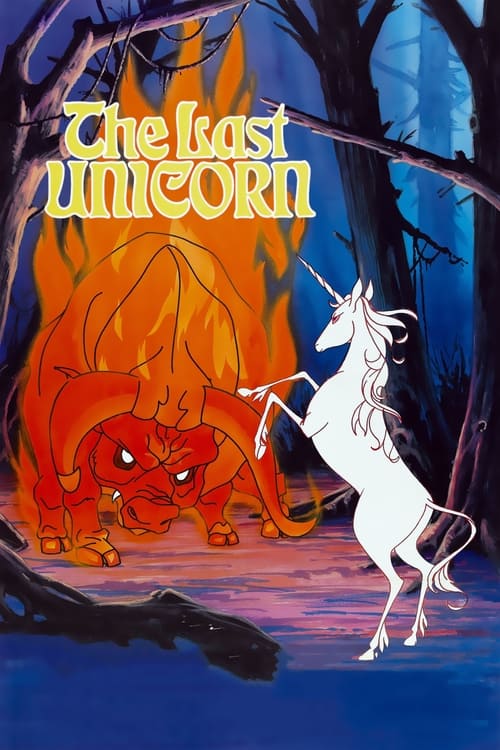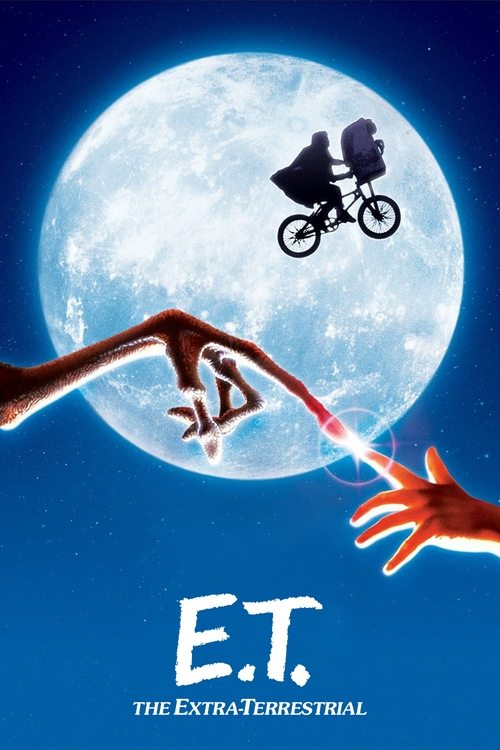
Ask Your Own Question
What is the plot?
In the heart of New York City, during the bleak years of the Great Depression in 1933, a young and spirited orphan named Annie lives in the Hudson Street Orphanage. The orphanage, run by the cruel and alcoholic Miss Agatha Hannigan, is a place of hardship and despair for Annie and the other girls. Despite the harsh conditions, Annie remains optimistic, holding onto the hope that her parents, who left her as a baby, will one day return for her. Her only clue to her past is half of a locket, which she treasures dearly.
One evening, Annie decides to take matters into her own hands and sneaks out of the orphanage with the help of Mr. Bundles, the laundry man. During her escape, she adopts a stray dog she names Sandy. However, her freedom is short-lived as she is soon caught by a policeman named Weasel and returned to the orphanage. This brief taste of freedom only strengthens Annie's determination to find a better life.
As fate would have it, Annie's life is about to take a dramatic turn. Grace Farrell, the secretary to the wealthy billionaire Oliver Warbucks, arrives at the orphanage with an offer that could change everything. Warbucks, seeking to improve his public image, wants to invite an orphan to live with him for a week. Annie, with her infectious optimism and charm, is chosen for this opportunity. Along with Sandy, she leaves the orphanage and heads to Warbucks' lavish mansion.
Upon arrival, Annie is introduced to Warbucks' many servants and his bodyguards, Punjab and the Asp. Initially, Warbucks is dismissive of Annie, preferring a boy to boost his image. However, Annie's spirit and charm soon win him over. He takes Annie and Grace to Radio City Music Hall to watch a movie, Camille, which becomes a pivotal moment in their bonding. As the days pass, Warbucks finds himself growing more and more fond of Annie, and Grace encourages him to consider adopting her.
Meanwhile, Miss Hannigan's brother, Rooster Hannigan, and his girlfriend, Lily St. Regis, concoct a scheme to pose as Annie's parents and claim a reward that Warbucks has offered for anyone who can prove they are Annie's real parents. Unbeknownst to Annie, Miss Hannigan possesses the other half of the locket, which would confirm the truth about her past. However, Miss Hannigan's intentions are not entirely altruistic, as she is driven by greed and a desire to exploit the situation for her own gain.
As the story unfolds, Annie begins to realize that her life at the mansion is not just a temporary reprieve but a potential new beginning. Warbucks, now deeply attached to Annie, decides to adopt her officially. However, before the adoption can be finalized, Rooster and Lily put their plan into action. They arrive at the mansion, pretending to be Annie's parents, and convince Miss Hannigan to help them. Annie, initially excited at the prospect of finding her parents, soon realizes the truth when she sees Miss Hannigan step into the car with Rooster and Lily.
The orphans back at the orphanage overhear Rooster and Lily's plan to kidnap Annie and kill her after collecting the reward. They manage to escape and make their way to Warbucks' mansion to warn him. However, they arrive too late, as Annie has already been taken by Rooster and Lily. The kidnappers drive away, intending to collect the reward and then dispose of Annie.
In a tense and dramatic sequence, Annie cleverly tears up the reward cheque during a stop, enraging Rooster. A chase ensues as Annie tries to escape, leading them to a large bridge. Annie climbs up the bridge's structure to evade capture, but Rooster pursues her. Just as all hope seems lost, Punjab, Warbucks' bodyguard, arrives via helicopter and rescues Annie by kicking Rooster off the bridge. Miss Hannigan, who had been helping Rooster, tries to intervene but is overpowered. Warbucks and Grace arrive soon after, reuniting with Annie safely.
The next day, Warbucks officially adopts Annie in a joyful and lavish celebration at his mansion. The event is attended by all the orphans from the Hudson Street Orphanage and even President Franklin D. Roosevelt. Miss Hannigan, in a comical turn of events, is punished for her role in the kidnapping plot by falling into a pigsty and being dragged away by a police dog, though she is not imprisoned. Rooster and Lily are arrested for their crimes.
As the film concludes, Annie finds herself embracing her new life and family. She no longer longs for her birth parents but instead focuses on the love and support she has found with Warbucks. The movie ends on an optimistic note, with Annie surrounded by her new family and friends, symbolizing hope and resilience during the difficult times of the Great Depression. The final scene is filled with music and laughter, as Annie and those around her look forward to a brighter future.
More Movies Like This
Browse All Movies →What is the ending?
At the end of the 1982 movie "Annie," Annie is finally adopted by Oliver Warbucks, who has come to realize how much she means to him. After a series of events involving a confrontation with Miss Hannigan and her brother Rooster, who attempt to kidnap Annie for a reward, the story culminates in a joyful reunion. Annie's dream of having a family comes true as she and Warbucks embrace, and the film concludes with a celebration of love and hope.
Now, let's delve into the ending in a more detailed, chronological narrative.
As the climax of the film unfolds, we find Annie in a precarious situation. Miss Hannigan, the cruel matron of the orphanage, has teamed up with her brother Rooster and his girlfriend, Lily, to kidnap Annie. They believe they can claim the reward that Oliver Warbucks has offered for Annie's safe return. The trio concocts a plan to take Annie away, disguising themselves as her long-lost parents.
In a tense scene, Annie is lured into a trap at a decrepit hideout. Rooster and Lily, filled with greed, attempt to convince her that they are her real family. However, Annie, with her resilient spirit, remains skeptical and holds onto the hope that Warbucks will come for her. Her internal struggle is palpable; she longs for the love and security that Warbucks has provided, contrasting sharply with the deceitful intentions of her captors.
Meanwhile, Oliver Warbucks, having grown deeply attached to Annie, is frantic with worry. He has been searching for her, and his determination to find her showcases his transformation from a wealthy businessman to a caring father figure. His emotional state is one of urgency and fear, as he realizes how much Annie has come to mean to him.
As the story reaches its peak, Warbucks, along with his loyal staff and the police, tracks down Annie's location. The tension escalates as they burst into the hideout just in time to confront Miss Hannigan, Rooster, and Lily. A chaotic struggle ensues, but ultimately, the villains are apprehended, and Annie is rescued. The moment is filled with relief and joy, as Annie is reunited with Warbucks, who embraces her tightly, expressing his love and commitment to her.
In the aftermath of the rescue, Warbucks takes decisive action to adopt Annie officially. The scene shifts to a grand setting where a ceremony is held to finalize the adoption. Annie, dressed in a beautiful white dress, radiates happiness. The warmth of the moment is underscored by the presence of her friends from the orphanage, who cheer her on, symbolizing the bonds of friendship and community that have supported her throughout her journey.
As the film draws to a close, the final scene is a celebration of family and love. Warbucks and Annie stand together, surrounded by their friends, as they sing a joyful rendition of "Tomorrow." The song encapsulates the hope and optimism that has been a central theme throughout the film. The camera pans out, capturing the joyous atmosphere, and the screen fades to black, leaving the audience with a sense of fulfillment and the belief that dreams can come true.
In summary, the fates of the main characters are as follows: Annie finds her forever home with Oliver Warbucks, who has transformed into a loving father figure. Miss Hannigan, Rooster, and Lily face the consequences of their actions, being taken away by the police. The film concludes on a high note, celebrating the triumph of love, hope, and the importance of family.
Is there a post-credit scene?
The 1982 film "Annie" does not have a post-credit scene. The movie concludes with a celebratory finale featuring Annie and her friends, along with Daddy Warbucks, as they sing "Tomorrow." The story wraps up with a sense of hope and happiness, emphasizing the themes of family and optimism, but there are no additional scenes or content after the credits roll. The film ends on a high note, leaving the audience with a feeling of joy and resolution.
What is the significance of the character Daddy Warbucks in Annie's life?
Daddy Warbucks, played by Albert Finney, is a wealthy businessman who initially embodies the archetype of a hard-nosed capitalist. His character arc is crucial as he transitions from a solitary, emotionally distant figure to a caring father figure for Annie. His initial motivation is to fulfill a philanthropic obligation by hosting a child for a week, but as he spends time with Annie, he becomes genuinely invested in her happiness and well-being. This transformation is marked by his growing affection for her, culminating in his desire to adopt her, which signifies his emotional awakening and the importance of family.
How does Annie's relationship with Miss Hannigan evolve throughout the film?
Annie, portrayed by Aileen Quinn, has a tumultuous relationship with Miss Hannigan, played by Carol Burnett. Initially, Miss Hannigan is depicted as a cruel and neglectful caretaker who resents the orphans under her charge. Annie's optimism and resilience challenge Miss Hannigan's authority, leading to a series of confrontations. As the story progresses, Miss Hannigan's jealousy and desperation become more pronounced, especially when she learns of Annie's potential adoption by Daddy Warbucks. This culminates in a dramatic confrontation where Miss Hannigan's true nature is revealed, showcasing her vulnerability and the lengths she will go to maintain control.
What role does the character of Sandy play in Annie's journey?
Sandy, the lovable stray dog that Annie adopts, serves as a symbol of companionship and loyalty throughout the film. Their bond is established early on when Annie finds Sandy in the streets, and he becomes her confidant and protector. Sandy's presence provides emotional support for Annie, especially during her struggles with loneliness and her dreams of finding a family. The dog also plays a pivotal role in key scenes, such as when he helps Annie escape from Miss Hannigan's clutches and later, when he is included in the family dynamic with Daddy Warbucks, reinforcing the theme of love and belonging.
What is the significance of the song 'Tomorrow' in Annie's character development?
'Tomorrow' is a central song in the film that encapsulates Annie's hopeful outlook on life despite her difficult circumstances. The song reflects her resilience and unwavering belief that better days are ahead. As she sings it, we see her internal struggles and dreams of escaping the orphanage and finding her parents. The repetition of this song throughout the film serves as a motif for her optimism, influencing not only her character development but also impacting those around her, including Daddy Warbucks, who begins to adopt her hopeful perspective.
How does the setting of the orphanage influence the story and Annie's character?
The orphanage, run by Miss Hannigan, is a grim and oppressive environment that shapes Annie's character and her outlook on life. The stark, cold setting contrasts sharply with Annie's vibrant spirit and dreams of a better life. The harsh conditions and Miss Hannigan's cruelty serve as catalysts for Annie's resilience and determination to escape her circumstances. The orphanage represents the struggles of many children in similar situations, and Annie's ability to maintain hope and kindness in such a setting highlights her strength and the film's central themes of perseverance and the search for family.
Is this family friendly?
The 1982 film "Annie" is generally considered family-friendly, but there are a few scenes and themes that might be potentially objectionable or upsetting for children or sensitive viewers:
-
Orphanage Environment: The film opens in a bleak orphanage run by the harsh Miss Hannigan, where the children are subjected to strict discipline and neglect. The atmosphere is dark and oppressive, which may be unsettling for younger viewers.
-
Miss Hannigan's Behavior: Miss Hannigan often displays frustration and cruelty towards the orphans, including verbal abuse and threats. Her character embodies a mean-spiritedness that could be distressing.
-
Themes of Abandonment: Annie's backstory involves her being abandoned by her parents, which introduces themes of loss and longing for family. This emotional weight may resonate deeply with sensitive viewers.
-
Dangerous Situations: There are moments where Annie and her friends find themselves in precarious situations, including encounters with shady characters, which could evoke feelings of fear or anxiety.
-
Conflict and Tension: The film includes scenes of conflict, particularly involving Miss Hannigan and her attempts to thwart Annie's happiness, which may create tension that could be uncomfortable for some children.
-
Emotional Moments: There are poignant scenes that deal with feelings of loneliness and the desire for belonging, which may evoke strong emotions in viewers.
While these elements are integral to the story's development and ultimately lead to a hopeful resolution, they may require parental guidance for younger audiences.
who is punjab
In the 1982 film "Annie," Punjab is a character who serves as a loyal bodyguard to the wealthy Oliver Warbucks. He is portrayed as a large, imposing figure with a gentle demeanor, often seen wearing a suit and a turban, which reflects his Indian heritage. Punjab is characterized by his strong sense of loyalty and dedication to Warbucks, often assisting him in various situations throughout the film.
His most notable moment comes during the climax when he uses his strength and skills to help Annie and her friends escape from the clutches of Miss Hannigan and her brother, Rooster. Punjab's presence adds a layer of protection and support for Annie, showcasing the theme of friendship and loyalty that runs throughout the film. His character, while not heavily featured in dialogue, embodies the spirit of camaraderie and the importance of standing up for what is right.
is punjab magical?
In the 1982 film "Annie," Punjab is not depicted as a magical place. Instead, it is a character in the story, specifically the loyal and strong bodyguard of Daddy Warbucks, who is portrayed by Geoffrey Holder. Punjab is a large, imposing figure with a gentle demeanor, and he plays a significant role in the film, particularly in the scenes involving the rescue of Annie and her friends.
His character adds a sense of strength and protection, but the film does not present Punjab as a magical entity. Instead, he embodies loyalty and bravery, helping to create a safe environment for Annie and showcasing the themes of friendship and support that run throughout the movie. The film focuses more on the emotional journey of Annie, her quest for family, and the relationships she builds with Daddy Warbucks and the other characters.

